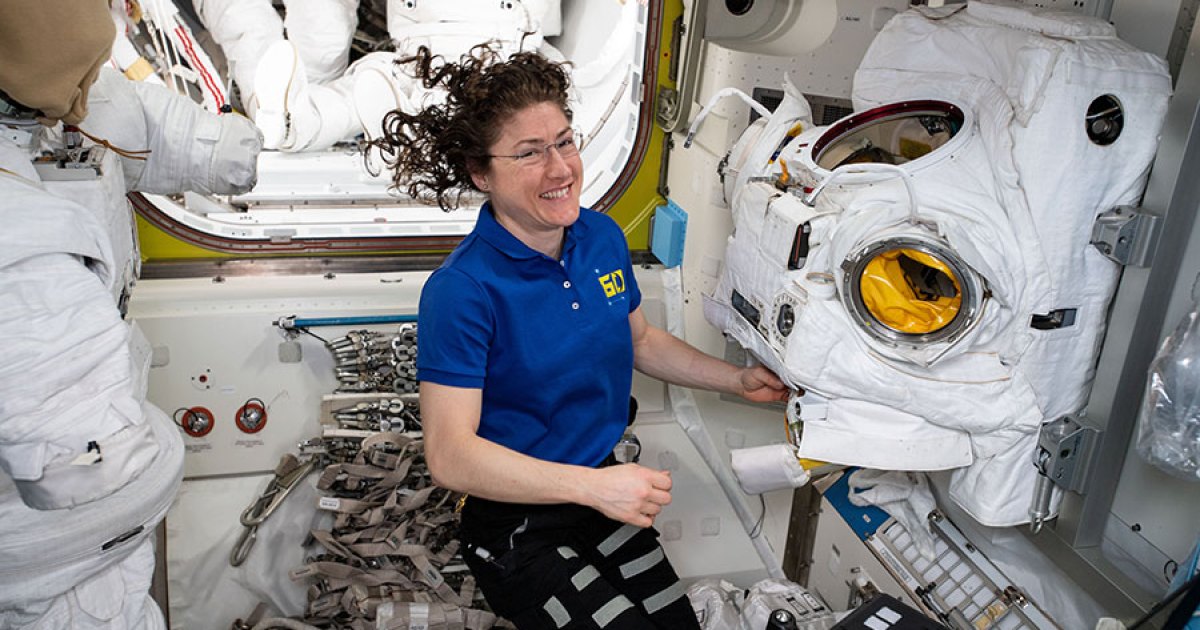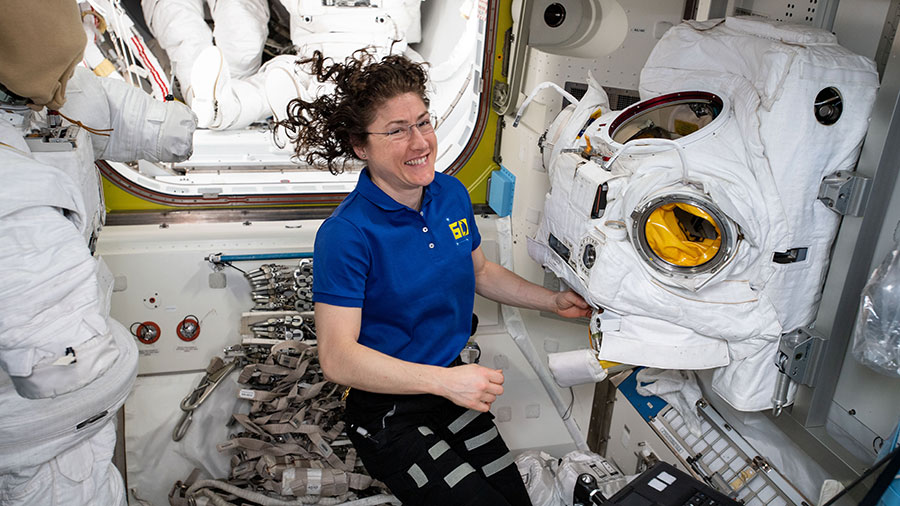
Astronaut Christina Koch: NASA Can ‘Absolutely’ Get to the Moon by 2024
Astronaut Christina Koch believes we can “absolutely” get to the moon by 2024.
In an interview with Digital Trends Live, Koch — who recently completed a 328-day stint on the International Space Station (ISS) — said that getting two astronauts to the moon by 2024 is a “bold goal.”
“But I think bold goals bring about innovative ways of doing business,” she said.
NASA’s Artemis mission seeks to put American astronauts on the moon for the first time since 1972, including the very first woman to set foot on the moon’s surface.
 Expedition 60 Flight Engineer Christina Koch of NASA works on a U.S. spacesuit in the Quest airlock where U.S. spacewalks are staged aboard the International Space Station. NASA
Expedition 60 Flight Engineer Christina Koch of NASA works on a U.S. spacesuit in the Quest airlock where U.S. spacewalks are staged aboard the International Space Station. NASA
Having a long-term lunar presence would allow more efficient travel to distant parts of the solar system as well as the potential for more discoveries about the moon itself. The planned lunar base would include elements like a vehicle for transporting astronauts around the moon’s surface, some kind of mobile habitation to allow astronauts to travel across the moon for up to 45 days at a time, and a more permanent lunar habitation structure where up to four astronauts could live for short periods.
Koch added that the work and research NASA is doing right now would allow the Artemis mission to succeed, adding that robotics and artificial intelligence could play a key role in the upcoming Artemis missions.
Human-piloted spacecraft were limited about where and when they could land since previous landings were done with the help of the human eye, Koch said. She said that with automated landing, the moon will be opened up in new ways, like being able to explore the South Pole.

Koch said that aside from automated landings, advancements will also allow astronauts to stay for extended periods on the moon in the Artemis missions — something she experienced first-hand on the ISS.
“The future of human space exploration is bright,” Koch said.


